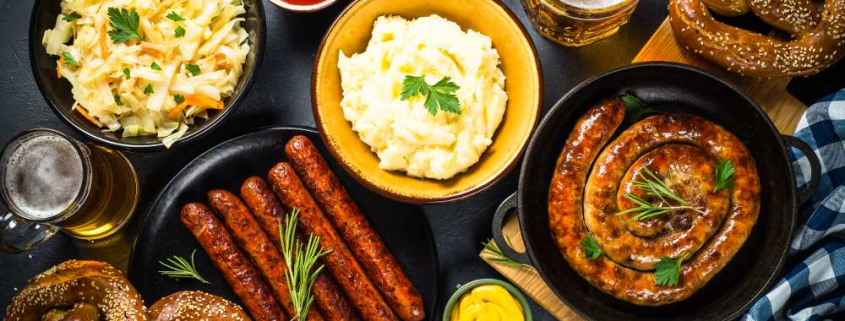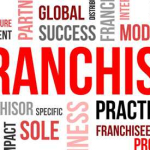The food & beverage franchising sector is flying in Italy
Food and Beverage (F&B) is a sector of Italian society and economy at the heart of the lives of millions of people; in fact, the first European country in the F&B segment is Italy. The turnover in the franchising F&B in Italy has been constantly increasing each year, as international franchise brands appear year by year.
1. The importance of the food and beverage (F&B) sector in Italy
Food and beverage (F&B) is a sector of the Italian society and economy that is not only every day at the heart of the lives of millions of people but is increasingly protagonist of the project to relaunch Italy in the name of her Beauty.
With over 300 thousand companies, 1.2 million employees and 46 billion of euro turnover, F&B is an extraordinary asset of the Italian economy and society.
Italy is the third European Union country by population, with almost 59 million people residents.
In fact, Italy is the first European country in the F&B segment. The Italian cuisine is worth 205 billion Euro (19% of the global F&B market). Retail (catering within supermarkets or shopping centers) proves to be the most dynamic format in this phase of economic recovery, highlighting an increase of +27.6% from the previous year. The increase from the first year of the pandemic for commercial establishments located in tourist destinations (Travel) or entertainment points (Entertainment) is also double digits. The territory is the source of inspiration of the Italian catering model. Without the wealth of experiences, cultures, productions that the territory expresses there would be the richness and quality of Italian catering.
It is no coincidence that among the first ten things’ tourists most appreciate in Italy, in the first place is the restaurant and the third bar. Culture, in the broadest sense of urban socialization, and cuisine is a fascinating mix for international tourists.
In short, two essential traits of the Italian style and the Italian way of living make the difference in tourism of an increasingly globalized world.
The F&B supply chain is one of the most important market segments resilient and dynamic of the Italian economy. In fact, F&B is one of the markets that had the greatest impact of Covid, with turnover growing in 2020 (+0.8%) compared to the collapse of the entire economy (-8.9%).
According to the forecasts, the market has continued to grow in 2022 to +6.3% compared to the pre-Covid period (against +3.7% of the entire economy). The main driving force behind the development of the sector is the first-stage training (+14.6% between 2022 and 2019), followed by the beverage segment (+4.6%) which had strongly led to lockdown (-4.4% in 2020 over 2019).
2. Franchising and F&B in Italy: 2022 has recorded an increase
In Italy, the F&B turnover in the franchising sector during 2022 is finally over returned above pre-Covid values and reached 93 million Euro.
The impact of the franchise chains on this turnover in Italy is 9%, while it was only 7% in 2019 (with an increase by 54% between 2008 and 2019). This value of 9%, however, is still lower tha the percentages of other countries, such as France and Germany, where it is estimated to be around 30%, and the United Kingdom, where it is estimated over 40%.
In fact, 50% of the F&B market is made up of full-service restaurants, that is locations with table service and a relatively higher quality of food; 28% of quick service restaurants, combining fast food and points of sale/ take away, 21% of coffees and bars.
In Italy, franchising’s turnover has been recording steadily increases for years. According to the latest data available, franchising has reached during 2022 a turnover of 30.9 billion euros, compared to 23.2 billion euros in 2014: this means an increase of +33% in 8 years! Within these macro data, the weight of food and catering is around 10%.
3. Big maneuvers underway in the franchise restaurant industry in Italy
During 2023, several international franchise food brands have appeared in Italy, in partnership with large groups, and other major brands are on the way too. This means, in short, that big maneuvers are underway in Italy. Lets’ briefly see some examples.
Paul‘s first Italian restaurant opened in Rome, having MyChef as a franchisee, part of Areas group. At Terminal 2 of the Malpensa airport (near Milan), the first Pret – owned by JAB Holding Company – in Italy opened its doors, having as affiliate Chef Express. In June 2023, the SSP Group, with its 2.2 billion turnover in 2022, landed in Italy by opening 3 points of sale at Rome’s Termini railway station, that is, the Belgian company Exki – that was a trailblazer in the healthy food sector – Yo Sushi and Leon.
Other important brands are on their way to expand in Italy soon: Goiko, a prestigious premium burger chain, controlled by the LCatterton investment fund, is about to come soon in Italy, as well as Brewdog, and many others.
Some other interesting brands that until now have only grown with openings in direct management, have announced that they will soon open their points of sale in Italy by using the franchising formula, having successfully experimented their business model, as required by Italian Franchise Law, such as Miscusi, Kebhouze and Grom.
4. The strategic value of the “small” venue, which produces margins
“We have to be better, not just bigger”. It was 2003 when the CEO of McDonald’s, Mr. Jim Cantalupo, expressed with these simple words a concept that is still valid today. As a matter of fact, there is no point in pursuing the numerical growth of a franchise chain as an end in itself, if this does not bring with it profitability. This is particularly true in Italy.
“Growth comes from being better”, added Mr. Cantalupo. This statement can be read on two levels: one concerns the numbers of the entire franchise chain, the other the size of the franchising points of sale. Focusing on the second aspect, the size of the premises, let’s observe how the main restaurant chains are moving in Italy.
McDonald’s, a precursor, had already christened the concept of “satellite” at the time: smaller premises than average, which therefore require less investment and allow it to achieve a widespread presence in the territory. Above all – this is what matters for the investor, be it the franchisor company or the franchisee – premises whose relationship between sales, margins and Capex still makes the investment interesting.
McDonald’s also created the concept of “kiosk“, very widespread for example in Brazil, an even smaller declination of the satellite. The golden arches thus managed to pave the way, later followed by others, towards a widespread presence in particular locations, such as museums, hospitals, police stations, supermarkets (thanks to an agreement with Walmart, in Italy something similar had been signed with Upim), service stations (thanks to an agreement with Chevron, Agip/ENI in Italy), amusement parks (such as Aquafan, Mirabilandia), etc.
Small venues (which sometimes have a reduced offer compared to the full one), involve fewer demanding investments, but if well positioned they offer interesting ROI, in a market in which changes are increasingly faster and customers are increasingly demanding and looking for innovation. And in the case of relocation, they involve even lower costs.
In fact, in these years of great reduction in the margins, mainly due to economic dynamics, the choice of the “right” location increasingly becomes the key to success for a catering format. Market operators have learned that it is no longer the number of openings in a year that matters, but how many of these are able to generate cash and create profit.
Today, factors such as delivery, smart working and southern working have changed the dynamics of the development of franchisors, leading them to re-evaluate smaller but more widespread locations, in order to have a good ability to manage the fluctuating turnover flows.
Avv. Valerio Pandolfini
For other in-depth articles on issues relating to franchising: visit our blog.
The information contained in this article is of a general nature and is not to be considered an exhaustive examination of the various issues, nor is it intended to express an opinion or provide legal advice. Specific legal advice must be provided with regard to individual cases.



